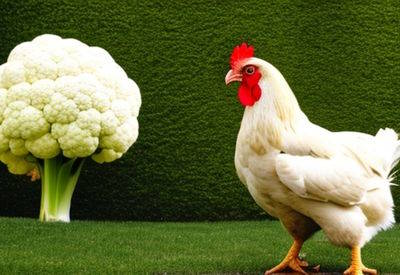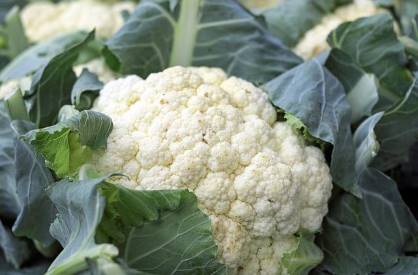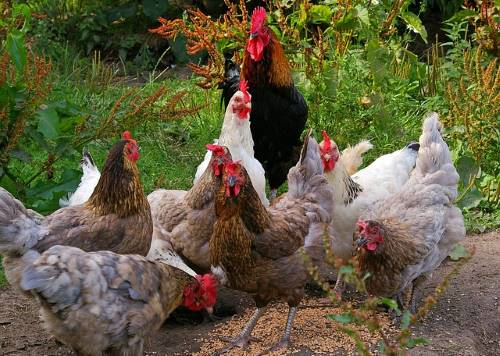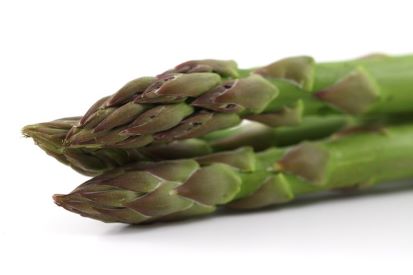Can chickens eat cauliflower? Yes, as long as it is served in moderation, chickens can eat cauliflower! It has lots of nutrients that will benefit your chickens’ health and is a great source of fiber.
Cauliflower can be served raw or cooked, and chickens enjoy all parts of the vegetable – including the leaves and stem. That said, it should only be served as a treat rather than an everyday meal. Too much cauliflower can lead to digestive problems for chickens, so it should not make up the bulk of their diet.
This article will discuss the benefits of feeding chickens cauliflower and give some tips for preparing the vegetable for your chickens. Read on to learn more about safely and healthily adding cauliflower to your chickens’ diet.

Can chickens eat cauliflower?
Cauliflower provides many benefits to chickens. For starters, it contains high levels of vitamin C, which helps boost their immune systems and keep them healthy. Its high fiber content also helps promote better digestion and keeps their guts healthy.
Its calcium content makes it perfect for helping young chicks develop strong bones and healthy muscles. Additionally, its antioxidants help fight off free radicals in the body, which can cause diseases in chickens if left unchecked.
When preparing cauliflower for your chickens, avoiding giving them any part of the vegetable treated with pesticides or other chemicals is best. It is also important to ensure that the cauliflower is not wilted, rotten, or moldy.
[ChickenAffiliate]
The benefits of eating cauliflower for chickens
Not only is cauliflower a delicious treat that chickens enjoy, but it also provides vital nutrition and other important benefits. Here are five reasons why you should be feeding cauliflower to your chickens.
Nutritious Snack
Cauliflower is high in fiber, vitamins, minerals, and antioxidants, making it a nutritious snack for your chickens. It’s also low in calories and fat and contains no cholesterol or sodium, so you can rest assured that you’re giving your chickens the best possible diet.
Reduces Stress
Cauliflower helps reduce stress levels in chickens which can help them stay healthy and happy. Stress can be caused by a variety of things including overcrowding and changes in the environment, so providing your chickens with stress-reducing food such as cauliflower can make a big difference in their overall wellbeing.
Strengthens Bones
The calcium found in cauliflower is essential for building strong bones and promoting healthy growth in chickens. The calcium helps maintain egg production and prevents eggshell breakage during laying season.
Boosts Immune System
The Vitamin C found in cauliflower helps boost your chickens’ immune system, which keeps them from getting sick more often than usual. This means fewer vet visits for antibiotics or other treatments for common illnesses such as colds or flu-like symptoms.
Supports Digestive Health
Eating cauliflower regularly supports digestive health since it is high in dietary fibers, which help promote regular bowel movements and prevent constipation or other digestive problems such as diarrhea or bloating.
Things to watch out for when feeding cauliflower to chickens

Cauliflower is a great option if you’re looking for something different to feed your chickens. But did you know there are some things you should be aware of before feeding it? Let’s look at what to watch out for when feeding cauliflower to your chickens.
Cauliflower is High in Fiber
Cauliflower is high in fiber, making it difficult for chickens to digest if they are not used to consuming it. To introduce cauliflower into their diet, start by offering small amounts and gradually increase the amount over time as their digestive system adjusts.
Also, be aware that too much fiber can lead to diarrhea, so monitor their droppings closely when introducing cauliflower to their diet.
Don’t Offer Too Much Cauliflower
Cauliflower should never make up more than 10% of a chicken’s diet. It is best used as an occasional treat or snack and should never replace the staple feed you provide them daily.
When feeding cauliflower to your chickens, always offer other vegetables alongside it, such as carrots and spinach, so they get the variety they need in their diet.
Watch for pesticides
Since cauliflower is a popular vegetable, many farmers use pesticides and chemicals to keep it free from pests or diseases. Be sure to opt for organic cauliflower when feeding it to your chickens, and always wash it thoroughly before giving it to them so that any residue from the pesticides is washed away.
How often should chickens eat cauliflower?
When it comes to cauliflower, it can make a great treat for your feathered friends, but it shouldn’t be part of their daily routine. Cauliflower is a high-fiber, nutrient-rich vegetable. However, no more than 10% of your chickens’ diet should consist of fruits and vegetables – so offer this tasty vegetable in moderation.
Cauliflower served fresh can provide chickens with important vitamins and minerals – remember to watch the portion sizes and ensure that the rest of their meals consist of essential grains, vitamins, and nutrients necessary for optimal health.
How to prepare cauliflower for feeding to chickens

Are you looking for a way to add variety to your chickens’ diet? Here’s how to make sure your chickens get the most out of their cauliflower meal.
Wash First
Whether you plan on cooking the cauliflower or serving it raw, you must give it a good wash before feeding it to your chickens. Soak it in a bowl of cold water and use a vegetable brush to scrub off any dirt. Once you’ve given the cauliflower a thorough cleaning, drain off the water and pat dry with a clean towel.
Chop into Small Pieces
Once cleaned, cut up the cauliflower into small pieces that are easy for your chickens to eat. You don’t want large chunks that could be too difficult for them to swallow; aim for pieces no more than an inch in size. This will also help ensure that none of the pieces get wasted because your flock can easily consume them.
Cook or Serve Raw
Now comes the fun part: cook up your vegetables or serve them raw. If you opt for cooked, lightly steam them until they are tender but retain their shape (about 5-7 minutes).
If you decide on raw, remember that this option may take some time for your chickens to get used to, as many birds have not eaten raw vegetables before. So start slow and gradually increase their portions over time as they become accustomed to eating raw food.
Can baby chickens eat cauliflower?
It can be difficult to decide what kind of food is safe for baby chicks, but it turns out that cauliflower is a great option. However, they should not start eating it until they are at least a couple of months old. Even then they should only eat a small amount compared to an adult chicken.
Cauliflower is a good source of vitamins and minerals and can provide chickens with the necessary nutrition for a healthy diet. Most importantly, it is easy to digest and can help them maintain good digestive health.
What other vegetables can chickens eat?

You may have heard that cauliflower is a great vegetable to feed your chickens, but did you know there are plenty of other delicious vegetables your feathered friends will love? Here’s a look at some of the best vegetables to feed your flock.
Broccoli
Broccoli is one of the healthiest vegetables you can give your chickens. It’s high in fiber, which helps their digestive systems run smoothly, and it’s also packed with important vitamins and minerals. Just make sure to chop up the florets into small pieces so that they’re easier for your chickens to eat.
Read More: Can Chickens Eat Broccoli? 6 Amazing Benefits
Asparagus
Asparagus is a great source of fiber and vitamin A for your chickens. Plus, its crunchy texture makes it a fun snack for them. Just cut it into small pieces before giving it to your birds.
Read More: Can Chickens Eat Asparagus? 5 Awesome Benefits
Cabbage
Cabbage is another great choice for chickens. It contains calcium, Vitamin C, magnesium, phosphorus, and potassium – all essential nutrients for healthy chicken development. Make sure you chop the leaves into smaller pieces before serving them to your flock.
Read More: Can Chickens Eat Cabbage? 5 Excellent Benefits
Green Beans
Green beans are an excellent source of protein and iron for chickens. Plus, they’re full of vitamins and minerals that help keep their feathers shiny and healthy. Again, break them into smaller pieces before offering them to your birds.
Read More: Can Chickens Eat Green Beans? 4 Important Benefits
Brussel Sprouts
Brussel sprouts are highly nutritious for chickens and contain an impressive amount of Vitamin K and other essential vitamins and minerals. They also provide a good source of dietary fiber which helps keep their digestive systems running smoothly! Make sure you cut them into small pieces before giving them to your birds.
Read More: Can Chickens Eat Brussel Sprouts? 5 Fantastic Benefits
Can chickens eat cauliflower – final thoughts
Chickens can safely eat cauliflower. This veggie offers many important nutritional benefits that will help keep your feathered friends healthy and happy. Just remember that if you decide to feed your flock this tasty treat, then make sure you remove all dirt or debris before serving it up and cut it into smaller pieces if necessary.
As always, only offer this food in moderation because too much can cause digestive problems. Do your research and try to provide a balanced diet of fruits, vegetables, and grains for your flock – this will help ensure they get the best nutrition possible.
Related Articles:
